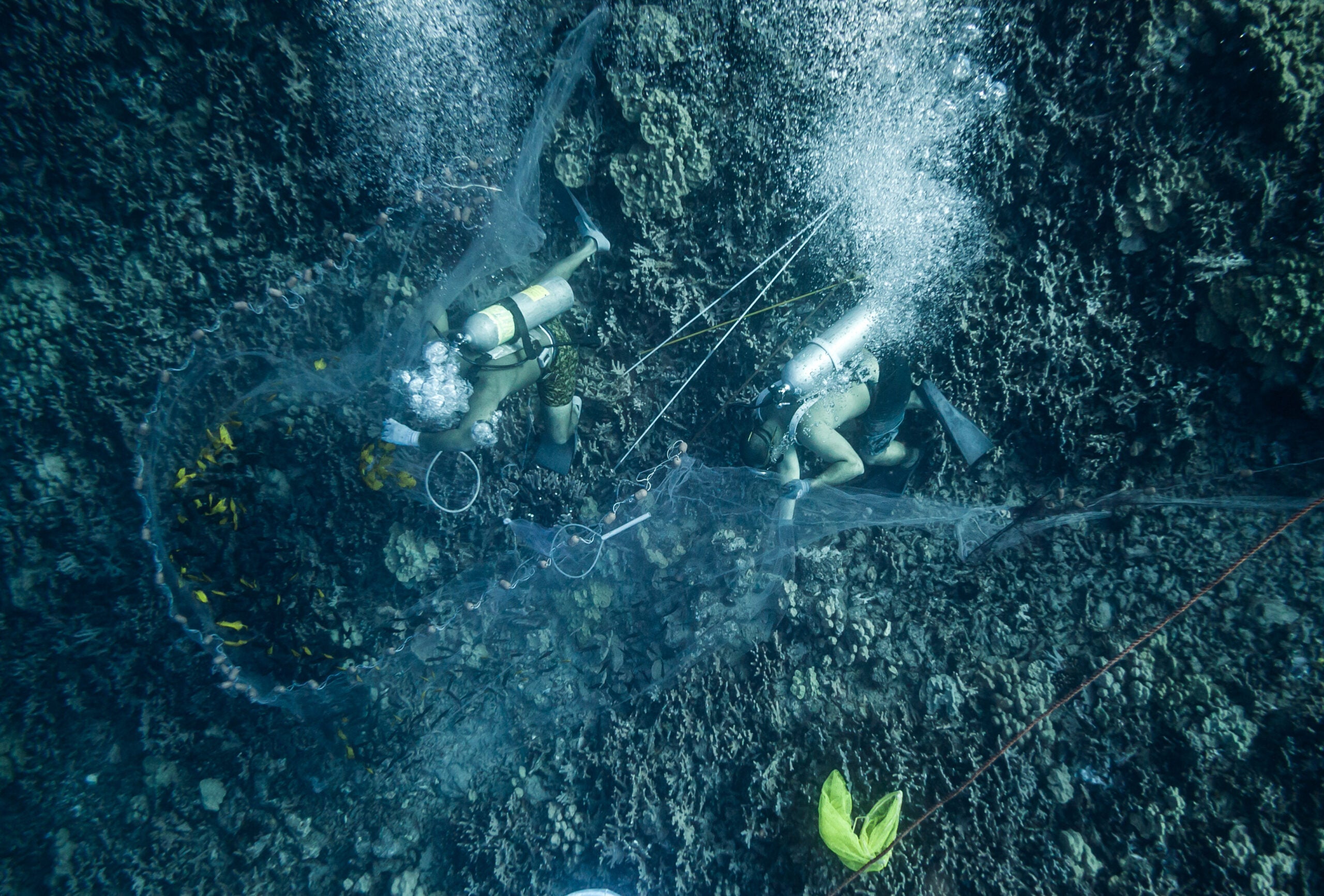Native Hawaiians and Conservationists Sue Hawai‘i Agency for Rampant Aquarium Collection Harming Hawai‘i’s Reefs
After a 2017 Hawai‘i Supreme Court decision requiring environmental review of aquarium collection, state agency created loopholes for industry
Contact
Today, a coalition of Native Hawaiians and conservation groups filed a lawsuit against the state Department of Land and Natural Resources (DLNR) for allowing the unregulated extraction of fish and other aquatic wildlife from Hawai‘i’s reefs by the aquarium pet trade without any environmental review. A landmark decision from the Hawai‘i Supreme Court and subsequent circuit court injunction in 2017 required DLNR to stop issuing permits for commercial aquarium collection until the agency examined the environmental impacts. Instead, the agency created a loophole to allow the industry to sidestep the court rulings and carry on without permits, resulting in the extraction of more than half a million marine animals from Hawai‘i reefs over the past two years.
Earthjustice is representing a coalition of community groups and Native Hawaiian cultural practitioners, including For the Fishes, Willie and Ka‘imi Kaupiko, Mike Nakachi, and the Center for Biological Diversity in the lawsuit against DLNR for violations of the environmental review law (called the Hawai‘i Environmental Policy Act or HEPA), state aquarium collection laws, and the public trust doctrine under the Hawai‘i Constitution. The lawsuit comes weeks after the coalition alerted DLNR of its wrongdoings, but the agency did not respond or take any actions to correct course.
“We’re going to court today to safeguard Hawai‘i’s treasured marine life against an absentee agency that insists on giving the aquarium industry free rein to strip our reefs and export our marine life to mainland hobbyists,” said Earthjustice attorney Mahesh Cleveland. “Half a million marine animals in two years is devastating for our reefs, and just scandalous in light of the courts’ instructions to halt aquarium collection until the agency and industry fully come to grips with the environmental impacts of what they’re doing.”
Photo courtesy of Victoria Martocci
Kole, a type of surgeonfish native to Hawaiʻi, is a prized traditional food source and suffers widespread aquarium collection in the state.
“We were shocked to learn that under the agency’s watch, the industry has continued ravaging Hawai‘i’s reefs without any assessment of environmental harm, despite the courts’ rulings,” said Rene Umberger, Executive Director of For the Fishes. “Taking hundreds of thousands of marine animals for private profits obviously requires public scrutiny and accountability under the environmental review process.”
“The state has a duty to ensure our reefs can feed us for generations to come, not to line the aquarium pet trade’s pockets.” said Ka‘imi Kaupiko, who regularly fishes with his family in Miloli‘i, the state’s last traditional Hawaiian fishing village. “These collectors are taking food off of our tables, and the state is doing nothing to ensure the industry’s practices are sustainable.”
“Hawai‘i’s reefs are the lifeblood of Kānaka Maoli and our communities,” said Mike Nakachi, a Native Hawaiian cultural practitioner. “We simply can’t afford to allow the aquarium trade to continue lawlessly, putting private profits over the health and protection of our public trust resources.”
“The agency’s decision to deregulate the aquarium trade threatens Hawai‘i’s precious reef ecosystems, which are already at risk due to climate change,” said Maxx Phillips, Hawai‘i Director of the Center for Biological Diversity.
An Illegal Loophole for the Aquarium Trade
The Hawai‘i Supreme Court ruled in 2017 that commercial aquarium collection under permits is subject to environmental review under the Hawai‘i Environmental Policy Act, and the Circuit Court then voided all permits and ordered a moratorium on renewing or issuing new aquarium collection permits pending the environmental review process. But in response, DLNR has effectively deregulated the aquarium pet trade by continuing to issue and renew commercial marine licenses to aquarium collectors without first requiring aquarium collection permits or environmental review, as long as collectors say they don’t use fine-meshed gear.
DLNR’s loophole has enabled the aquarium trade to harvest more than half a million marine animals without any environmental review over the past two years, continuing business as usual for the industry and sidestepping the courts’ rulings. The loophole raises further suspicions, however, because such continued rates of extraction would be extremely difficult without using fine-meshed gear, which has always been the primary means for gathering aquarium fish. Yet DLNR has done nothing to verify what kind of equipment the aquarium collectors are actually using.
The collected animals are primarily herbivorous reef-dwellers that serve important functions in the coral reef ecosystem, such as helping to control algae growth. Studies have shown that reducing the abundance and diversity of reef fish and important invertebrates affects a reef’s ability to respond to stresses or disturbances.
Meanwhile, DLNR is overseeing the ongoing court-ordered environmental review process for West Hawai‘i and O‘ahu. But the recently issued draft environmental impact statement only looks at collection with fine-meshed gear and does not address the impacts of DLNR’s manufactured loophole for other types of gear either now or in the future.

Additional Resources
About Earthjustice
Earthjustice is the premier nonprofit environmental law organization. We wield the power of law and the strength of partnership to protect people's health, to preserve magnificent places and wildlife, to advance clean energy, and to combat climate change. We are here because the earth needs a good lawyer.